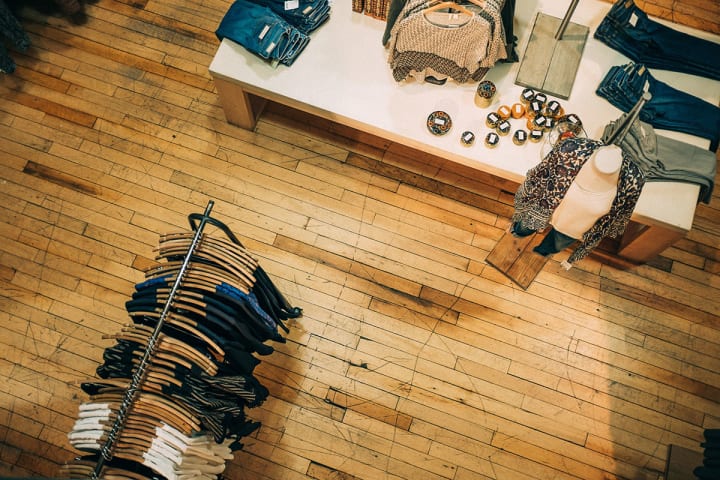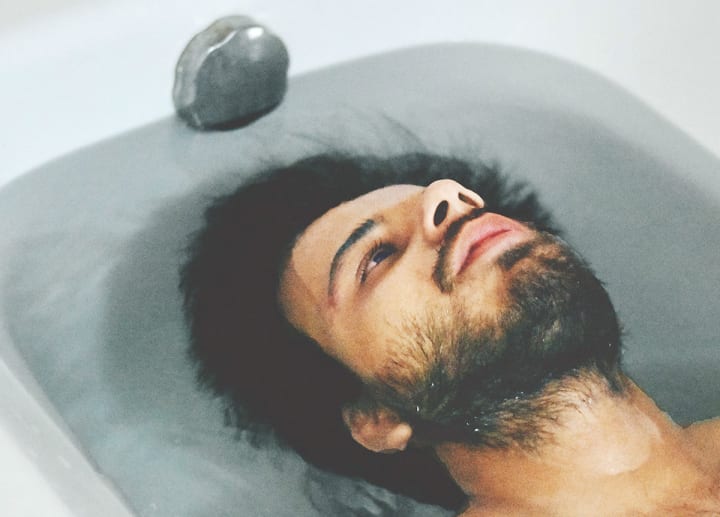Why You Should Spend Your Money On Experiences, Not Things
Money can't buy happiness, but it can buy experiences that make you happy.

Everyone has heard of the tale of old Ebenezer Scrooge—a man who had all the money he could count, but never actually left his office long enough to enjoy it. Though Scrooge himself never existed, his fictional plight is one that is increasingly common in today's society.
Today's society is one that has become starkly materialistic. Those who don't believe it can take a look at the waves that Kim Kardashian makes when she debuts a new outfit, or the amount of designer name drops rappers place in their hit singles. And, this isn't necessarily a good thing if you value your mental health.
As a society, we're obsessed with stuff.

Though it's always been human nature to want the nicest things, the truth is that it's way too common to emphasize how many goodies we have. In fact, most people you'll meet make a point of buying things to prove that they are successful and happy in life.
To a point, we assume that the items we buy will make us happier—if only because we'd get more praise for owning them. Financial expert Dave Ramsey nailed it when he said, "We buy things we don't need, with money we don't have, to impress people we don't like."
But, things don't make us happy—and there's science backing that.

Dr. Thomas Gilovich, a professor of psychology at Cornell University, had launched a 20-year study to discover how possessions and money impact the way we feel. The research took an in-depth look at how people spent their money, what they spend their money on, and whether or not it made them happy in the long and short term.
What he found was that spending money on luxury items was actually a poor investment in terms of happiness. Experiences, however, significantly boosted a person's overall wellbeing and mood.
The case against retail therapy is a strong one.

If you've ever met a serious shopaholic, you probably have noticed that they aren't usually the happiest, most relaxed people you'll ever meet. Dr. Gilovich actually found several reasons for this—and what he found will likely dissuade you from that next shopping trip.
We tend to take the things we buy for granted, or just get used to them.

Dr. Gilovich's study revealed that buying new goods on a regular basis tends to increase the standards that we have for our lifestyle. If you're a frequent shopper, a standard purse from Sears probably wouldn't excite you. On the other hand, getting a luxury limited edition Prada bag would probably be thrilling.
However, if a person who tends to avoid shopping malls at all costs is given a new bag from Sears, the study revealed that they would be happier about it and also use it for a longer time. The reason why is because when we get used to an object, we will go out and search for something bigger and better.
Constantly searching for better, more luxurious objects makes us dissatisfied with what we have. This is why many people who own luxury mansions and closets filled with designer clothing often say that they "feel poor," or that they don't have "enough."
This is because of the way that human adaptation works.

Humans are, by nature, adaptable. If we get handed a bad hand in life, we can adapt to tolerate it. Similarly, if we get good things in life, we tend to adapt to that standard of living and forget how awesome it is. Simply put, we lose the excitement we once had over an item because we adapt to being used to having it around.
This is why A-list celebrities aren't super excited when they drive Ferraris, and why most other people would be absolutely thrilled to drive a Ferrari. They are used to it, while we aren't.
The study also showed that we tend to overestimate how happy objects will make us when we buy them.

The problem that comes with buying things is that we tend to believe that the items we're buying will continue to give us the happiness that we get from them when we leave the store. They don't. Counterintuitively, the stuff we buy doesn't keep us happy for too long afterwards.
Once we're used to seeing them around, we often will end up feeling slightly disappointed about them. Worse, in some cases, people may end up even feeling "trapped" by the maintenance that those items tend to require. As a result, material items tend to end up disappointing us—even if we loved having them at first.
Experiences tend to have a bigger emotional payoff.

Both Gilovich and other researchers have found that we tend to value experiences way longer than material possessions. This is because experiences tend to enrich us in a way that items don't. Moreover, while experiences only last a small time, we tend to think back upon them fondly.
Experiences, unlike material objects, are enjoyable even before we actually get to experience the full gamut of fun they provide. Things like planning a trip, actually traveling, and looking back at touristy photos you took all add to the enjoyment of a single experience.
Additionally, the memories we have from experiences tend to shape us as people. When you think about how short a time experiences last, this also adds value. After all, we are paying a big amount of money for something that only takes a small amount of time. That suggests inherent value. This in turn makes people feel way better about the choice to invest in experiences rather than a random object.
Explaining this further, Dr. Gilovich added, "You can really like your material stuff. You can even think that part of your identity is connected to those things, but nonetheless they remain separate from you. In contrast, your experiences really are part of you. We are the sum total of our experiences."
We also can't compare experiences the way that we can compare items.

One thing that's a huge drawback about material possessions is that it's really easy to compare two of them. If you have a three bedroom house, you probably would feel like a five bedroom house in the same neighborhood would be better. If you have a beat up Pontiac, you probably would prefer a BMW.
But, the same can't be said about experience. You can have just as much fun dancing in a luxury nightclub as you can going hiking. Comparing experiences is often like comparing apples to oranges... and that makes them way easier to value in many circumstances.
Lastly, fear of missing out is a legitimate worry.

Sometimes, you might just want to go out and experience new things as an investment in your future wellbeing. One study conducted in Great Britain showed that the biggest regrets people had in old age included not traveling the world and skipping out on experiences that they always wanted to do.
So, go ahead. Travel the world, even if you don't have much money to your name. Take that cooking class. Grab that rope, and go climbing. It's a way better way to spend your money than the purse that's on sale, and science backs that up.
About the Creator
Skunk Uzeki
Skunk Uzeki is an androgynous pothead and a hard partier. When they aren't drinking and causing trouble, they're writing articles about the fun times they have.
Enjoyed the story? Support the Creator.
Subscribe for free to receive all their stories in your feed. You could also pledge your support or give them a one-off tip, letting them know you appreciate their work.






Comments
There are no comments for this story
Be the first to respond and start the conversation.